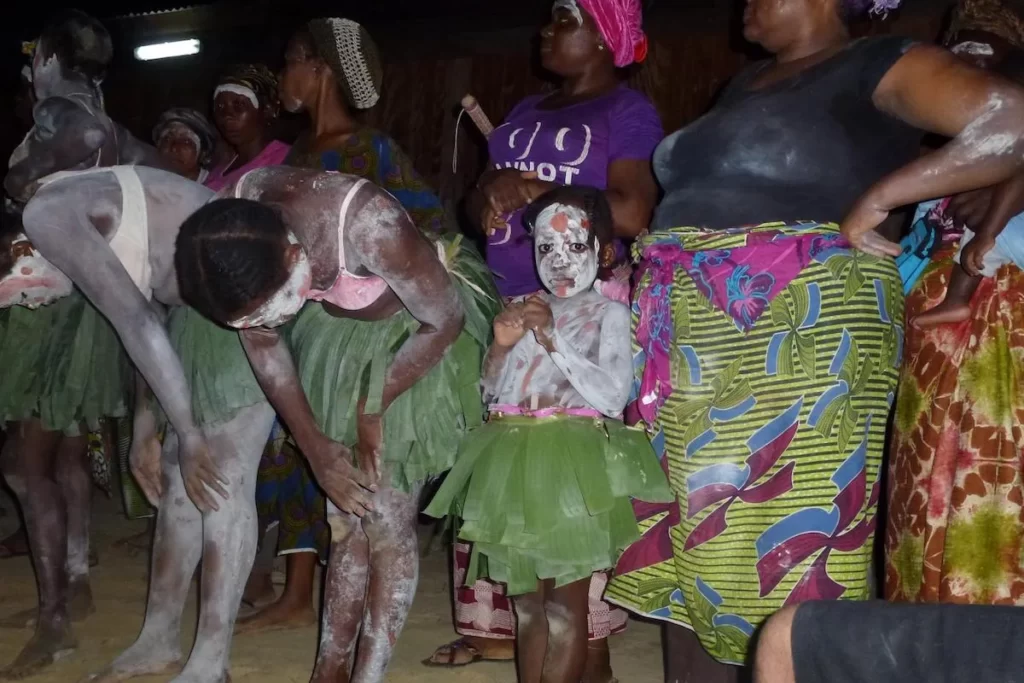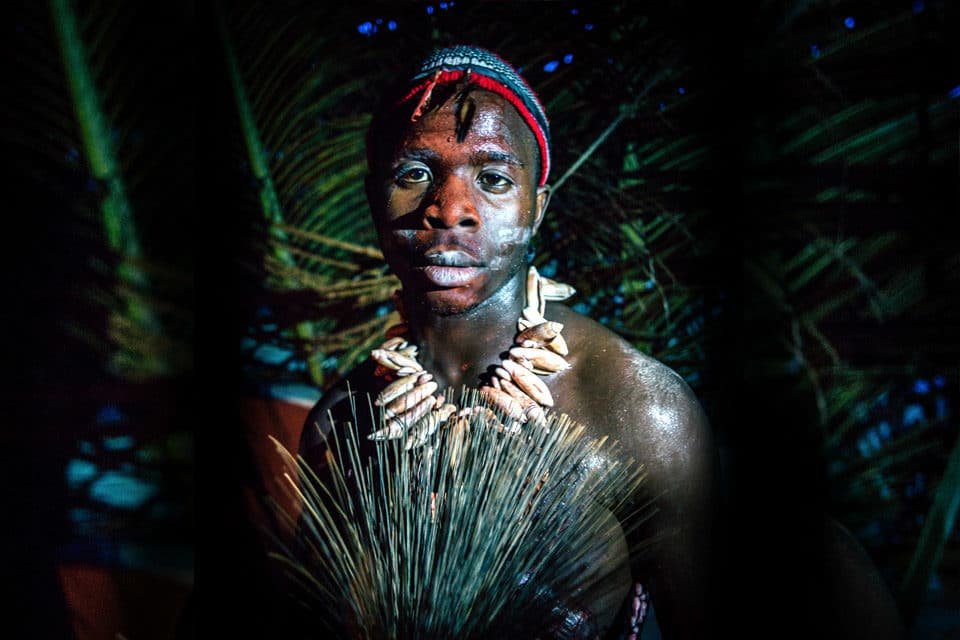Bwiti is a spiritual tradition of the people of Gabon, in West Africa.
It is a religion that is deeply rooted in the cultural and social fabric of the country and is widely practiced by the majority of its population. The religion is based on the belief that there is a divine connection between the physical world and the spiritual world.
Bwiti is a combination of traditional African spiritual beliefs and practices, and elements of Christianity that were introduced during colonial times. It is a syncretic religion, which means that it blends elements from different religious traditions.

The central belief of Bwiti is that the physical world is a manifestation of the spiritual world, and that the divine is present in everything. This belief is reflected in the idea of ancestor worship, as the spirits of the deceased are believed to be in close proximity to the living, and able to influence their lives.
The central symbol of Bwiti is the cross, which is used to represent the connection between the physical and spiritual worlds. Bwiti practitioners believe that the cross is a symbol of balance and harmony, and that it represents the interconnectedness of all things. The cross is often used in religious rituals and ceremonies, and is an important part of the spiritual practices of Bwiti.
Bwiti is a communal religion, and its practices and rituals are meant to be performed in groups. This is because the religion places a strong emphasis on the idea of community and belonging.
Bwiti ceremonies often involve singing, dancing, and the use of various musical instruments. This is a way to connect with the divine and with one another, and to foster a sense of community.
One of the most important aspects of Bwiti is the use of iboga, a powerful psychoactive plant that is believed to have spiritual properties. Iboga is used in religious rituals and ceremonies, and is believed to help practitioners connect with the spiritual world. The plant is also used as a way to treat various physical and psychological ailments, and is believed to have medicinal properties.
Bwiti is a religion that is deeply connected to nature, and the environment is seen as a sacred place. The forests of Gabon are considered to be the source of life and are believed to be home to the spirits of the ancestors. This connection to nature is reflected in the traditional practices of Bwiti, which often involve going into the forests for spiritual retreats or for the purpose of collecting iboga for religious use.
The Bwiti religion is also a source of cultural pride for the people of Gabon and is an important part of their identity. The religion is passed down from generation to generation and is an important part of the cultural heritage of the country. Bwiti practitioners often use traditional cultural practices and beliefs to help preserve their cultural heritage and to pass it down to future generations.
In conclusion, the Bwiti culture of Gabon is a rich and vibrant spiritual tradition that is deeply rooted in the cultural and social fabric of the country. It is a religion that is based on the belief in the connection between the physical and spiritual worlds, and that the divine is present in everything.
The religion is practiced in a communal setting and is an important part of the cultural heritage of Gabon. The Bwiti religion is a source of pride for the people of Gabon and is an important part of their identity.
It is a spiritual tradition that is alive and well and continues to be a source of inspiration and meaning for the people of Gabon.

